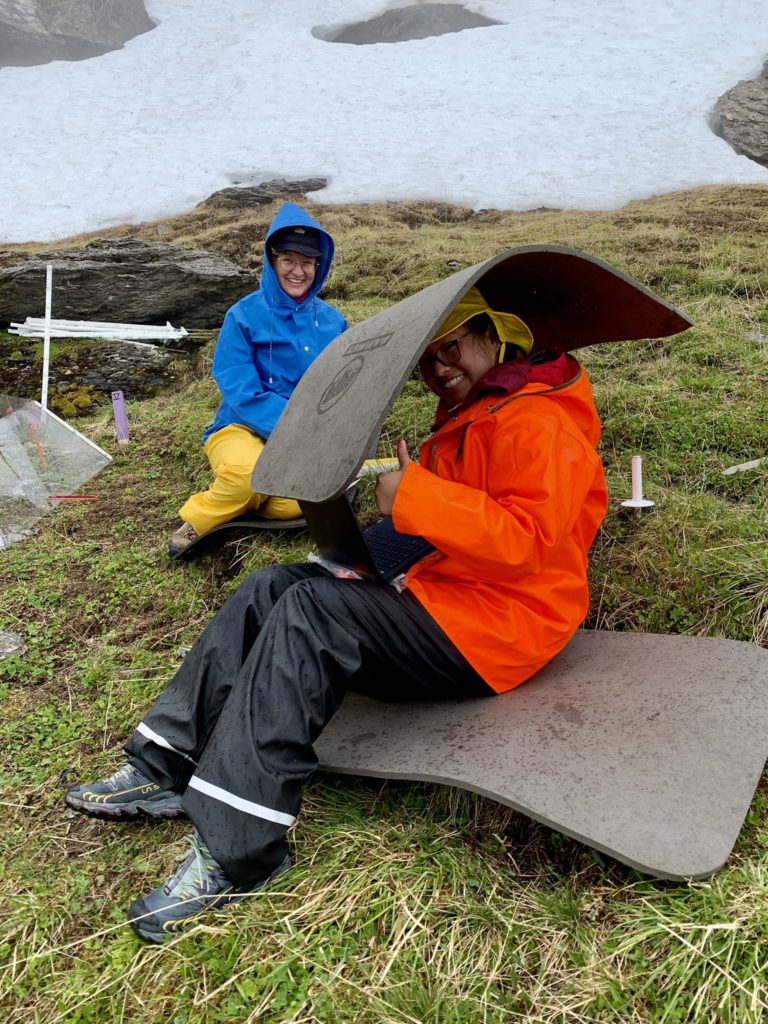Internships
Experience the life of a (field) ecologist
 Are you a biology student who is interested in alpine ecology, vegetation science, functional traits and ecosystem ecology, and how climate change will affect alpine, coastal, and/or high-latitude ecosystems? Then you are the right person for a research internship with us. Our internships will give you the chance to work with new fields and habitats, to learn important skills for a biologist such as data collection and analysis, critical thinking and problem solving, plus you will get a glimpse of the day-to-day work of ecologists and possibly establish contacts for future jobs abroad.
Are you a biology student who is interested in alpine ecology, vegetation science, functional traits and ecosystem ecology, and how climate change will affect alpine, coastal, and/or high-latitude ecosystems? Then you are the right person for a research internship with us. Our internships will give you the chance to work with new fields and habitats, to learn important skills for a biologist such as data collection and analysis, critical thinking and problem solving, plus you will get a glimpse of the day-to-day work of ecologists and possibly establish contacts for future jobs abroad.
We typically accept interns during summer, when the field season is in full swing. Our research is conducted through highly collaborative projects, and as an intern, you will join one or more of our research teams to get a taste of life as a researcher in such project-based research groups. This provides you with ample opportunities to gain new experiences and skills, usually through a mix of field work, lab work, and data management and reporting.
Practicalities
- We currently have no funding to support internships with us in the coming year (2024). Therefore, interested students will need to secure their own funding. Here are some great sources:
- We are connected to IAESTE where we advertise internships every spring, to come work with us in the summer.
- The Erasmus Student Network provides grants for exchange studies and internships (Erasmus+).
- Ask your home university about funding sources for international exchange and travel.
- We are aware that internships can have slightly different meanings and requirements between countries and universities. Please note that an internship in our group is not typically tailored to provide the intern with an individual research project.
Apply
To apply, send your CV and letter of motivation as two separate attachments to dagmar.egelkraut@uib.no.
In your letter, make sure to answer the following questions:
- In what timeframe are you looking for an internship?
- What are your (study) background and interests?
- Are there any specific projects or topics you would like to work on?
- What are the requirements from your home university – e.g., are you expected to write a scientific report, and if so, what are the requirements for that report?
- How do you intend to cover travel and living expenses? E.g., Erasmus grant or similar?
